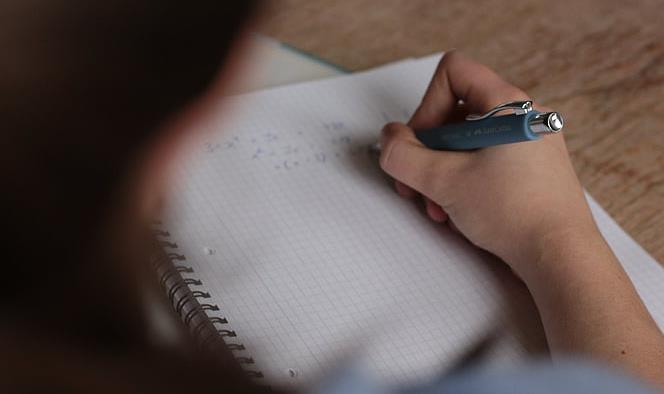初一英语仁爱版一般疑问句的结构和回答,仁爱英语七年级下册知识点归纳总结

初一英语仁爱版大多数情况下疑问句的结构和回答?
1.大多数情况下疑问句。
(1)可以用Yes或者No来回答的疑问句是大多数情况下疑问句。大多数情况下疑问句读时时常要用升调;译成汉语时常可以译为“……吗?”。
比如:-Are you a student? 你是个学生吗?
-Yes, I am. 是的,我是。
-Can you speak English? 你会说英语吗?
-Yes, I can. 是的,我会。
-Do you go to school every day? 你每天都上学吗?
-No, I don’t. 不,不是。
(2)如何将陈述句变成大多数情况下疑问句?
(1)句中有be动词(am,is,are,was,were等)、助动词(do,does,did,have,had
等)
或情态动词(can,must,will,may等)时,故将他提到句首,句末加上问号就可以。
比如:She is a clever girl. 她是个聪明的女孩。
→Is she a clever girl? 她是个聪明的女孩吗?
I can swim. 我会游泳。
→Can you swim? 你会游泳吗?
(2)假设句中没有be动词、助动词或情态动词,则要按照不一样的时候态在句首加上相
应的助动词来构成大多数情况下疑问句。比如,我们现在学过的大多数情况下目前时,当句子的
谓语动词是行为动词时,把句子变成大多数情况下疑问句就需要在句首加上助动词do或者
does提问。主语是第三人称单数时用does,其余人称用do。这个时候句子的谓语动
词要用原形。
比如:He likes reading books. 他喜欢读书。
→Does he like reading books? 他喜欢读书吗?
I do my homework every day. 我每天做作业。
→Do you do your homework every day? 你每天都做作业吗?
注意:在把陈述句变成大多数情况下疑问句时,除了以上的变化外,还需要注意一部分对应的词的变化,
比如人称的变化,或者把some变成any等。
比如:She has some bread for breakfast.她早餐吃了些面包。
→D oes she have any bread for breakfast? 她早餐吃了些面包吗?
I am a student. 我是个学生。
→Are you a student? 你是个学生吗?
I do my homework every day. 我每天做作业。
→Do you do your homework every day? 你每天都做作业吗?
由题意就可以清楚的知道:英语大多数情况下疑问句句式与陈述句句式的变化,涵盖以下几种形式
(1)句中含有“be"动词的陈述句变大多数情况下问句,把be动词置于主语前。如
Are you a Chinese teache?
Yes,I am.No,Iam not.
(2)句中谓语动词是实意动词,变大多数情况下问句加助动词do,does,如
Doyou want to go there?
Yes,I do.No,I dont.
Doeshe like swimming?
Yes,he does.
No,he doesnt.
(3)含助动词+动词的句子,变大多数情况下问句,助动词置于主语前。如
Will he come here tomorrow?
Yes,he will.No,he wont.
(4)含情态动词(can,may,must)+动词的句子,变大多数情况下问句,把情态动词置于主语前,如
Can he read it?
Yes,he can.No,he cant.
以上举例没涉及过去时态,完成时态,及被动语态)
仁爱英语七年级下册知识要点总结?
仁爱英语七年级下册重要内容及核心考点语言点总结
Unit 5 Our School Life
Topic1 How do you go toschool?
一、重点词语:
1. wake up醒来,唤醒 get up 起床
2. go to school 去上学 gohome 回家
3. go dancing / shopping / skating / swimming 去跳舞;购物、滑冰;游泳
go doingsomething 可用于表达去进行某种娱乐休闲活动。
4. 表示交通方法:
on foot 步行
by boat 坐船 by ship 坐船 by air 乘飞机
by plane 乘飞机 by train 坐火车 by subway搭乘地铁
by car 坐小汽车 bybus 坐公共汽车 by bike 骑自行车
5. take the subway / bus / car 搭乘地铁;公共汽车;小汽车
6. drive a car to work = go to work by car 驾车去上班
take a bus to work = go towork by bus 乘公共汽车去上班
go to school on foot = walkto school 步行去上学
7. ride a bike / horse 骑自行车;骑马
8. after school / class放学以后;下课以后
9. play the piano / guitar /violin 弹钢琴;吉他;小提琴
play basketball / soccer /football 打篮球;踢足球;打橄榄球
play computer games 玩电脑游戏
play with a computer 玩电脑
play sports 做运动
10. next to 紧挨着,在…旁边
11. a plan of my school 一幅我们学校的平面图
12. on weekdays 在工作日
at weekends 在星期六和星期天
13. have breakfast / lunch / supper / dinner / meals 吃早餐;中餐;晚餐;正餐;一日三餐
have classes / lessons / a meeting 上课;上课;开会
14. watch TV / movies / games / the animals 看电视;电影;比赛;动物
read novels / newspapers /books看小说;报纸;书
15. wash one’s face /clothes 洗脸;衣服
16. 反义词:up – down,early – late 近义词:quickly – fast
get up early 早起 be late for 迟到
17. the first / second / third / fourth day 第一;二;三;四天
18. clean the house打扫房子
19. 表示建筑物(特别学校建筑物):
on the playground 在操场
at school / home / table 在学校;家里;桌旁
in a computerroom / teachers’ office / classroom building / gym / library / lab / canteen
在电脑室;教师办公室;教学楼;体操馆;图书馆;实验室;食堂
20. around six o’clock = at about six o’clock 大概在六点
21. 频率副词:never,seldom, sometimes, often, usually, always
二、重点句型:
1. It’s time to get up. 该起床时了。
It’s time forbreakfast. = It’s time to have breakfast = It’s time for having breakfast.该吃早饭了
2. You must go to school early.你一定要早点去上学。(主观原因导致“一定要”)
I have to wash my facequickly. 我不可以不快速地洗脸。(客观原因导致“一定要”)
3. Happy New Year! The same to you! 新年快乐!也祝你新年快乐!
4. How about you? = What about you?你怎么样?
5. It tastes good. 它尝起来很好。 It sounds good.它听起来很好。
6. How do you usually go to school? I usually go to school by bike.
你一般怎样去上学?我一般骑自行车去上学。
What do you usually doafter school? I usually play computer games.
你一般放学做什么?我一般玩电脑游戏。
7. How does she usually go to work? She usually goes to work by car.
她一般怎样去上班?她一般开车去上班。
What does heusually do after class? He usually reads novels.
他一般下课后做什么?他一般看小说。
8. The early bird catches the worm! 早起的鸟儿有虫吃。/ 笨鸟先飞。
9. Where’s Mr. Zhou going? He’s going to Shanghai. 周先生将要去哪里?他将要去上海。
三、语法学习:学习大多数情况下目前时和目前进行时。
大多数情况下目前时:
1. 区别含有be动词和行为动词的肯定句式。
I am at home.√ I stay at home.√ 【 Iam stay at home. ×She stay at home. ×】
2. 大多数情况下疑问句、否定句表达的不一样方法:
Are you at home? Doyou stay at home? Does she stay athome?
Yes, I am. No, I am not. Yes, I do. No, Idon’t. Yes, she does. No, shedoesn’t.
I am not at home. Idon’t stay at home. She doesn’tstay at home.
3. 主语为第三人称单数时,谓语行为动词的变化。
She plays computer games on Sundays.
She studies English everymorning.
She goes to school onweekdays.
She has breakfast at 6:45.
4. 用法:
(1) 表示目前的状况:I am ateacher. You are student. They are in London.
(2) 表示常常的或习惯性的动作:Iusually go to school on foot. She plays tennis every morning.
(3) 表示主语具备的性格和能力等:Helikes playing basketball. They do the cooking.
目前进行时:
1. 基本句式结构:I am playing with a computer.
2. 目前分词构成法:
go – goingplay – playing have– having drive – driving
run – running swim – swimming begin – beginning
3. 用法:
(1)表示目前已经在进行的动作:She is having dinner. 她已经在用餐。
(2)方位动词的目前进行时可用来表示将要出现的动作:I’m going. 我要走了。
四、交际用语:谈论交通工具及如何上学和平日生活。
主要句型:
How do you usually go to school? I usually go to school by bike.
I’m riding a bike now.
What’s she doing? She’sdancing.
Do you often go to thelibrary?
Topic 2 How often do you have an English class?
一、 重点词语:
1. 学科名词:
政治politics ; 语文Chinese ; 数学math; 英语English; 历史history;地理geography;
生物biology; 音乐music ; 体育P.E.; 美术Art
2. 一周七天名词:
星期日 星期一 星期二 星期三 星期四星期五 星期六
Sunday Monday Tuesday Wednesday ThursdayFriday Saturday
3. swimming pool 游泳池
4. listen to music 听音乐 write letters 写信 goroller-skating 滑滑轮
go shopping 去购物 havean English class 上英语课 go to the park 去公园
meet friends 会见朋友 drawpictures 画画 play sports 做运动
watch TV 看电视 playcomputer games 玩电脑游戏 playsoccer 踢足球
work on mathproblems 解答数学题 take exercises 做运动
learn aboutthe past 学习历史 learn how to read and write in Chinese 学着用中文读写
play ball games with myclassmates 和我的同班考生玩球类游戏
5. be good at = do well in 擅长于… I am good at English. = Ido well in English.
6. be different from 与…不一样 the same as 与…一样
7. do outdoor activities 进行户外活动
8. every week 每周 eachday 每天 three times a week 每周三次
9. 反义词:boring –interestingdifficult – easy begin – finish
近义词:difficult – hard
10. care about 关心;担心
11. try to do something 尝试去做某事
12. do one’s best 尽力去做某事do one’s homework 做家作
13. like doing something = love doing something 喜欢做某事
hate doing something 讨厌做某事
14. noon break 午休
15. athalf past six = at thirty past six = at six thirty六点半at seven o’clock = at seven 在七点
at fivefifteen = at fifteen past five = at a quarter past five五点十五分
at fifteen to ten = at aquarter to ten = at nine forty-five 九点四十五分
16. for a little while 就一会儿
17. a student of Grade One 一年级的学生
18. eat out 出去吃
19. get home 到家
二、重点句型:
1. Which place do you like best? I like the computer room best.你喜欢哪个地方?我喜欢电脑室。
2. Swimming is my favorite sport. = I like swimming best. 游泳是我喜欢的运动。
3. Why do you think so? Because he likes sleeping. 你为啥想?因为他喜欢睡觉。
4. How often do you go to the library? Very often. 你常常去图书馆吗?常常。
5. Peter is good at soccer ball. 彼特擅长与足球。
6. My interest is different from theirs. 我的兴趣和他们的明显不同。
7. How many lessons do you have every day? 你每天上多少节课?
8. What time is school over? 具体是什么时候放学?
9. I try to do my best each day. 每天我都尽力做到好。
10. And if I always do my best, I need not care about the test. 假设我总是尽力,我就不用担心考试
11. After dinner, I often do my homework and then watch TV for alittle while.
晚餐后,我常常做作业然后看一会儿电视。
三、语法学习:以How,Wh- 开头的疑问句。
疑问词:how often, how long, how soon,how old, how many, how much, how big, how heavy, how wide, how far, what, when,who, whose, whom, where, which, why, what color, what time, what class…
四、交际用语:谈论课程、作息时间、个人爱好及学习生活。
主要句型:
Which place do you like best? I like the computerroom best.
What’s your favorite subject? Math is.
How often do you…? Everyday. Always. Often. Seldom. Never. Sometimes.
Do you like going to…?Yes, I do. / No, I don’t.
How many lessons do youhave every day? We have seven lessons every day..
When do morning classesbegin? At 7:20.
***Topic3 I like the schoollife here.
一、重点词语:
1. 反义词:first –lastborrow – return / give back
2. 名词单数转化复数:life –lives shelf – shelves leaf – leaves half – halves life - lives
3. between… and… 在…与…当中
4. school hall 学校大厅
5. else, other 别的
6. Lost and Found Room 失物招领处
7. the school life 学校生活
8. most of them 他们大多数all pupils 全部的学生few pupils 很少学生
9. spare time 空闲时间
10. have a short sleep 休息片刻
11. and so on 等等
12. on time 及时
13. Here it is. = Here you are. 给你
14. Our School Times 《学校时报》 Everyday Science 《每日科技》
15. get to school 到校get home 到家
16. learn…from 向…学习
17. 名词变成形容词:wonder– wonderful, use – useful, care – careful, beauty - beautiful
interest –interesting excite - exciting
二、重点句型:
1. Welcome to our school. 欢迎到我们学校来。
2. What do you think of our school? It’s very nice. 你觉得我们学校怎么样?它很漂亮。
3. Let me find it on the computer first. 第一让我在电脑上找到它。
4. Wait a minute. = Just a minute. 等一等。
5. Mary can’t find her purse and we’re looking for it. 玛丽没有找到她的钱包,我们已经在找它。
6. Is there anything else in it? No, there isn’t. 里面还不一样的吗?不,没有了。
7. Thank you anyway. = Thank you all the same. 也还是谢谢你。
Thank you foryour hard work. 谢谢你们的努力工作。
Thank you for asking me. 谢谢你邀请我。
8. Almost all the pupils walk or take a yellow school bus. 基本上全部的小学生都步行或坐黄色的校车。
Very few pupils ride bikes. 很少小学生骑自行车。
Most of them have lunch atschool. 他们大多数在学校吃午饭。
9. I read them with great interest. 我带着非常大的兴趣读它们。
10. We’ll let you know if we find yours. 假设我们找到你的(钱包)我们会让你清楚的。
11. May I ask you some questions? Yes, please 我可以问你哪些问题吗?
13. Where do you come from? I come from Australia. = Where are you from? I’mfrom Australia.
你来自哪里?我来自澳大利亚。
Which city of Australiado you come from? 你来自澳大利亚哪个城市?
14. How long can I keep it? Two weeks. 我能借多久?两个星期。
15. Do you have a problem? 你有问题吗?
三、语法学习:There is / are… 的学习。
1. 用法:表示存在。什么时候或者地址位置“有”什么东西
2. 几种基本句式:
There is a book and two pens on the desk. 桌上有一本书和两支笔。
******其它具体内容,请见附件。
2023仁爱英语七年级下册...大小:202.5K
已经过百度安全检测,放心下载
点击下载
初一英语仁爱版同人教版有哪些不一样?
1、仁爱的考试教材的编排方法更生动。仁爱版的主人公是康康,整套书都紧跟着康康展开的故事。并且每个小孩都具有自己的性格特点。例如,康康是智多星、迈克尔是个开心果。整本书的故事性强,通过展示哪些主人公的学习生活设置对话和短文。而相对来说人教版的单元是独立的,趣味性不及仁爱版。
2、难度大小不一样。对比来说,仁爱版英语起点低、循序渐进,方便初学者培养英语学习兴趣,以此很快进入英语学习状态。人教版的词汇量大, 需拓展的主要内容多, 合适基础好的学生用。仁爱版的英语三年六册学完后面,都可以达到《英语课程标准》( 版)之要求-五级水平,可以与任何版本的高中课标英语考试教材(六至九级)衔接使用。
3、语法学习编排不一样。仁爱版的是将语法还有功能句子列举出来一些,通过让学生去通过答题,查缺补漏。而人教版是直接将语法和功能都列举出来让学生直接阅读。两者相比之下,仁爱版的语法学习更加高效老师总结归纳还有学生的掌握并熟悉使用。
4、性质不一样。仁爱版的英语属于民营企业研发,人教版的属于国营企业研发。在中国现在这情况民营企业比较灵活,而且,是在教育部颁发的考试大纲内。
七年级英语仁爱版好句好段?
1. Good morning!早上好
Good afternoon!下午好
Good evening!晚上好
2.Hello!/Hi!你好
3.-Welcome to China! 欢迎来到中国
-Thank you. / Thanks. 谢谢
4. Im Kangkang. 我是康康
5.--Are you Michael? 你是迈克尔吗?
--Yes, I am. /No, Im not. 是的,我是。/不,我不是。
6.--Nice to meet / see you.见到你很高兴
--Nice to meet / see you,too.见到你我也很高兴
7. Mom, this is my teacher, Mr. Brown.妈妈,这是我的老师,布朗先生。
8.--How do you do?你好 --How do you do?你好
9.--How are you?你好吗?
--Fine, thanks./Im fine, thank you. And you?我很好,谢谢,你呢?
10.-Goodbye. 再见 --Bye.
1. 英语是国际通用语言,学好英语针对我们的未来发展很重要。2. 仁爱版七年级英语考试教材注重培养学生的语言应用能力,这当中涵盖不少好句好段,例如“Where there is a will, there is a way.”这句话告诉我们只要有决心,就一定会找到方式;还有“Practice makes perfect.”这句话告诉我们唯有持续性练习,才可以获取更好的成绩。3. 在学习英语的途中,我们可以多注意这些好句好段地运用,平时日常多累积,提升我们的语言表达能力。
1. Do not, for one repulse, forgo the purpose that you resolved to effort. ( Shakespeare ) 不要只因一次挫败,就放弃你原来决心想达到的目标。
(莎士比亚)2. The man who has made up his mind to win will never say Impossible.( Napoleon ) 凡是决心获取成功的人是压根不说“不可能”的。(拿破仑)3. Miracles sometimes occur, but one has to work terribly for them. ( C. Weizmann ) 奇迹有的时候,候是会出现的,但是,你得为之不要命蒂努力。
七年级英语仁爱版有关衣服的句子
As we all know, when we go out, we must wear something. And there are many clothes, such as: Jeans, dress, plants and so on, if you wear some beautiful clothes, you friends will think you are very pretty, but if you wear some ugly clothes, you friends will think you dont wear beautiful, you think I was very ugly and you dont like go shopping with me. So remember, the clothes is more important when you meet your friends. A beautiful clothes make us fell happy, but an ugly clothes will make us fell unhappy.
考研复习资料下载
华宇考试网考研免费资料下载
-
百度网盘提取码:gha7
考研视频课程
©下载资源版权归作者所有;本站所有资源均来源于网络,仅供学习使用,请支持正版!
考研培训班-名师辅导课程

>>考研培训班视频课程,听名师讲解<<

>>考研培训班视频课程,听名师讲解<<




